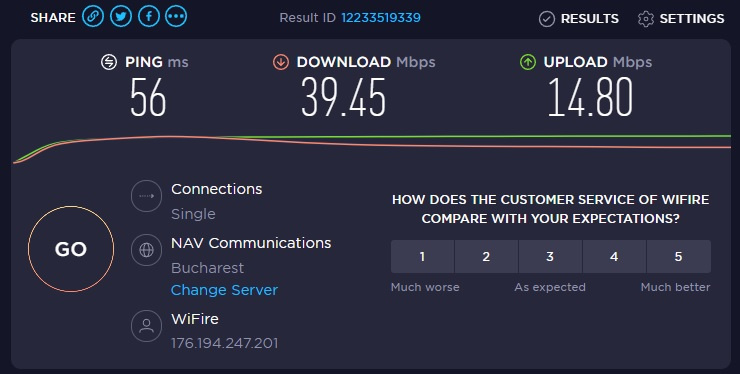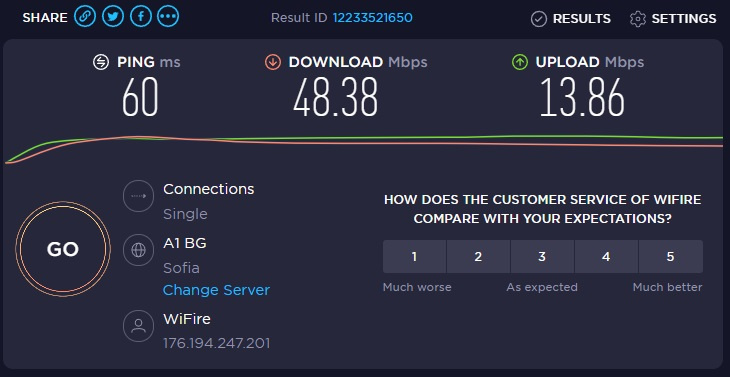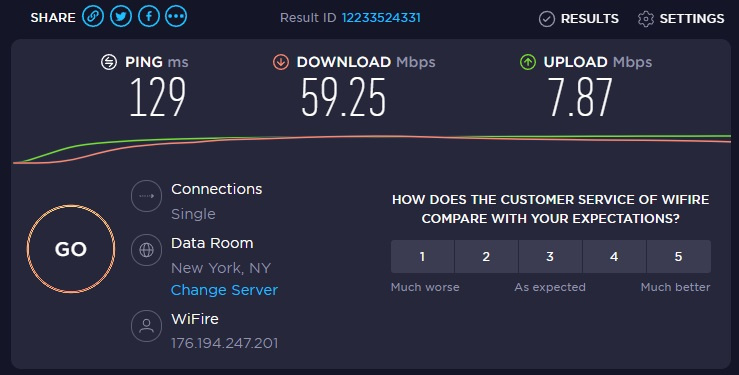Answer the question
In order to leave comments, you need to log in
How does the global Internet work?
I had to download a video from YouTube. However, a 3-minute video at 720p 25fps quality took 10 minutes to download. I decided to measure the speed of the Internet to different countries and saw a very strange thing. The speed to Bulgaria and Romania (which are on the opposite coast of the Black Sea) is less than the speed to New York (USA).



Answer the question
In order to leave comments, you need to log in
Your provider has uplinks to other providers (often to trans-trunk providers who personally own communication channels over long distances - for example, the provider itself is international and has optical channels laid to its data centers in other countries, or two large providers have some a canal that they built together and laid underground or across the ocean.There may even be communications bought jointly by several participants.
The cost of laying such channels is worth a lot of money. These are the works themselves and a huge number of permits for these works, which must be agreed with all owners and countries. Therefore, it pays off in such a way that between providers there are always some kind of mutual settlements for the transfer of traffic. Who generates content, actually gets more, who downloads - he pays.
But the cost of these mutual settlements can be different at different levels. Somewhere a certain amount is included in the subscription fee. Somewhere traffic at night is cheaper. Somewhere you can do it cheaper but slower. Conditions are different and flexible.
Therefore, rather complex rules are always configured in the switches of providers both to minimize this price and to ensure fault tolerance (if some route is broken, it can automatically start up through another channel, possibly slower). Plus admin errors.
Between some small countries, there may be a situation where throwing a direct cable does not pay off due to low traffic. But you still need to connect to some kind of uplink, so both countries have already invested in connecting to an international uplink and communicate with each other through it. The question of laying a direct cable may not be raised due to the high cost of work and low payback for years.
Also, out of the whole complex scheme, situations may arise when, for example, traffic from Ukraine to Russia, it will be cheaper to let it go not directly, but through Frankfurt, although it would seem that it would be shorter directly.
That's how we live.
PS Oh yes, also - ping and speed are different indicators, not always relevant to each other, but in some moments the channel width can affect ping. If we calculate the speed of light with the minimum cost of a packet passing through routers, we can say that the largest ping within the Earth should be about 400 ms between antipodal points. But here it is natural to take into account only optics between these points, or something else.
PPS good article on Habré from amarao https://habr.com/en/post/186282/
Didn't find what you were looking for?
Ask your questionAsk a Question
731 491 924 answers to any question